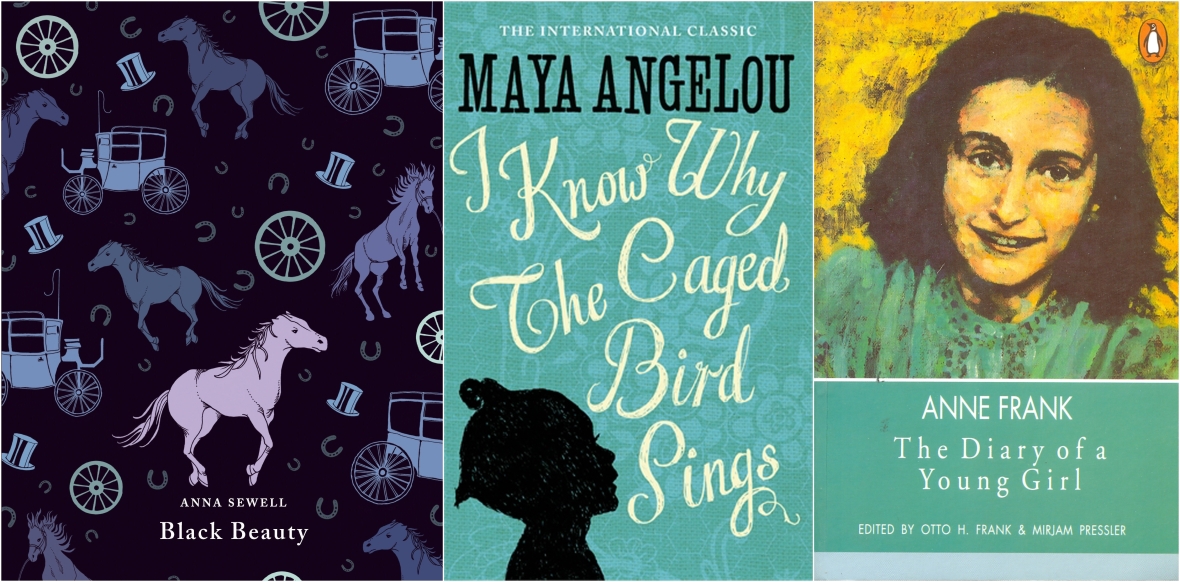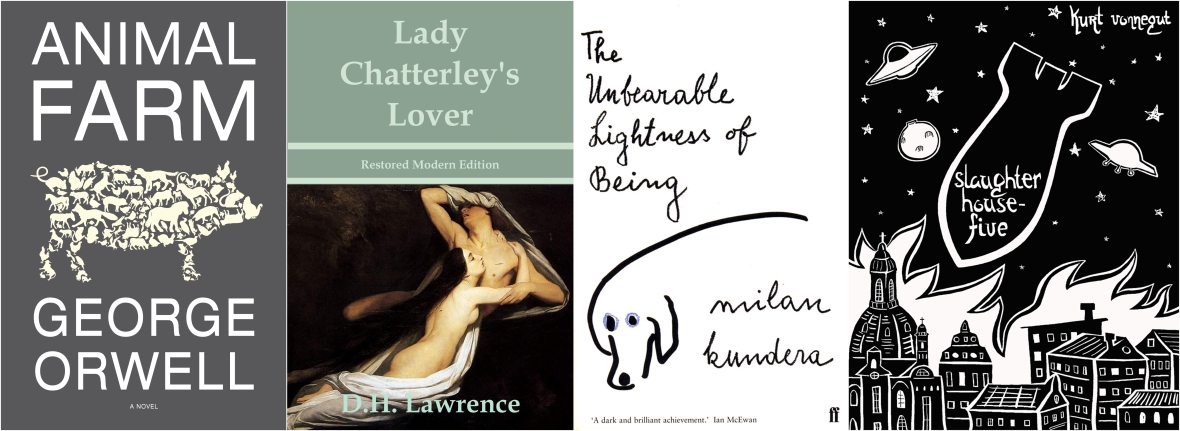Words: Chelsea Haith
Images: Sourced
Want to get your book read? Want it to be sold to every Tom, Dick and Harry? Want to make an impact and change the world with your literary genius? Get your book banned.
Here’s a list of banned books that went on to do rather well, with or without the bans.
1. Black Beauty – Anna Sewell
This is a novel about a black HORSE. And yet the Apartheid South African government felt so threatened by the suggestion of nubile black bodies being (gasp) beautiful that they banned this innocent novel and in doing so made it famous. Sewell appreciated the gesture I’m sure as sales went up when people tried to get a hold of the book to see what all the fuss was about. Imagine their disappointment…
2. I know why the caged bird sings – Maya Angelou
The autobiography of the recently late much-admired and critically successful African-American poet was banned and remains banned in some schools and libraries in the USA (where else?) for its inclusion of ‘pornography and violence’. I thought that if kids were looking for that, they could just turn on the news? Regardless, banning the book contributed to its fame and Angelou will always be remembered as one of the most outspoken and honest feminist and humanitarian writers of our time.
3. The Diary of Anne Frank
Probably the most well-known book ever written and the iconic work depicting the horrors of WWII, The Diary of Anne Frank was censored out of school textbooks in Lebanon after Hezbollah campaigned against its inclusion. The reason for their campaign against the iconic work? It portrays Jewish people in a positive light and was a “Zionist invasion of education”. Naturally this was met with outrage by the American Gathering of Jewish Holocaust Survivors and Their Descendants who stated that the censorship was an act against decency and a case of “Holocaust denial”. The Diary of Anne Frank continues to be one of the best-selling books in the history of print.
4. Animal Farm – George Orwell
A criticism of the effect of power – Absolute power corrupts absolutely – Orwell’s masterpiece has been banned several times, once by the Allies during the 1940s, once in its incarnation as a play in Kenya in the 1990s due to its criticism of corrupt leaders (O Precious Irony) and mostly recently in the United Arab Emirates in 2002. Pearls to swine, wouldn’t you say?
5. Lady Chatterley’s Lover – D.H. Lawrence
Considered the bodice-ripper of its time, Lady Chatterley’s Lover was banned in the late 1920s for its sexually ‘explicit’ treatment of the affair between a bored upper-class woman and a gamekeeper on the estate owned by her husband. DH Lawrence himself later went on to criticise Charlotte Brontë for her ‘sexualised’ novel Jane Eyre. All those burning trees and curtains catching alight were apparently too much for the fore-runner of the Mills&Boon genre. And of course, because the post-Victorians were so repressed, his own bit of naughty fiction did fabulously. God Save the Queen.
6. The Unbearable Lightness of Being – Milan Kundera
Kundera self-identifies as a French writer today but this seminal work focuses on life (and love) in Czechoslovakia and was banned in Kundera’s home country until 1989. The Red Army did not appreciate Kundera’s representation of life under Communist rule. Today the book is considered an important text as much for its philosophical musings as for its historical value.
7. Slaughterhouse-Five – Kurt Vonnegut
Vonnegut’s most famous, or infamous novel, is a rollicking ride into the weird and traumatising space of Post-Traumatic Stress Disorder and a coming to terms with the banality of existence. It has been called profane and disgusting. It features a harrowing description of Vonnegut’s own experience of Dresden and what one assumes is a fictionalised account of what is described as an artistic description of a blow-job. It is wonderful. Here’s to years more of bans on this novel so that young people everywhere search it out, buy it illegally, read it and find themselves changed from the experience.

